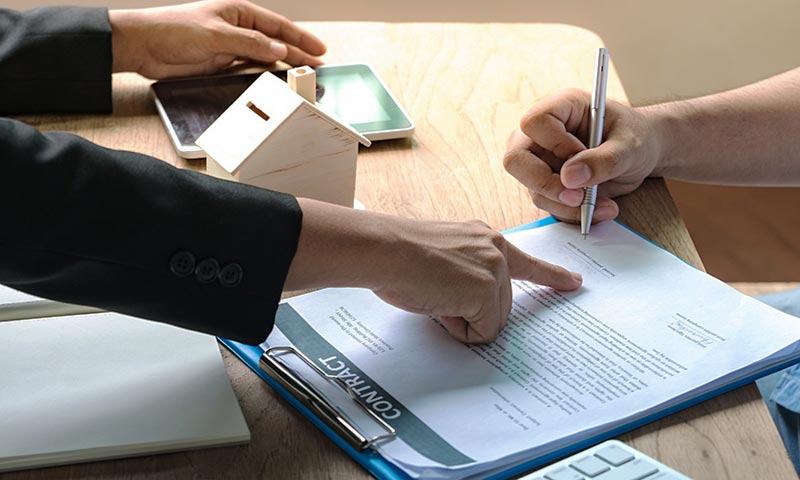
If you're planning to buy a property in Thailand, it's important to get legal advice. There are a number of important documents that you need to sign. These include a Foreign Exchange Transaction Certificate, Pre-SPA Agreement, Usufruct contract and Land title deed.
In property conveyancing in Thailand, it is important for both the buyer and seller to sign a Pre-SPA Agreement. This document will stipulate the conditions of sale and protect the buyer's interests. It will include terms and conditions and a list of items included in the transaction. In addition, it will stipulate the down payment amount, which is usually between 10 to 20 percent of the price of the property.
The Pre-SPA Agreement will also include an indemnity clause, which is an agreement between the buyer and seller to compensate each other in case of damage. The agreement will also contain the terms and conditions of the contract, which means that the parties are bound by these conditions, regardless of whether they are married or not. If either party fails to perform their obligations, the other party can terminate the SPA.
Foreign buyers in Thailand must present a Foreign Exchange Transaction Certificate (FET) before the transaction can be complete. This document is issued by a bank and must be in the same name as that of the buyer on the final purchase contract. Various banks in Thailand can offer the FET, including Bangkok Bank, Kasikorn Bank, and Siam Commercial Bank. Before submitting the FET, the buyer must notify the bank that the funds are intended to purchase a condominium unit in Thailand.
The certificate is required when a foreigner wants to purchase property in Thailand. It must be issued by a licensed financial institution under the BOT. It must be accompanied by instructions on how to purchase the condo. If the buyer does not provide the certificate, he or she will be prevented from registering the property.
A usufruct contract in Thailand is an agreement that gives you the right to use and enjoy a piece of real estate. This right can last up to 30 years, but cannot last longer than the life of the person granted the usufruct. This right will allow you to use the real estate property and profit from it. A usufruct in Thailand is granted by a party to a property conveyancing agreement. Once the usufruct expires, the real estate property reverts to the original owner.
The usufruct contract is an important part of the property conveyancing process in Thailand. It allows one party to use another's land and enjoy its fruits without actually owning it. The usufructuary has no rights to sell or lease the property, but he or she is allowed to earn income off the property.
If you want to sell or buy a property in Thailand, you need to check the land title dee before the deal is complete. Often, people make mistakes interpreting land titles, and end up buying houses on someone else's land. Other times, they believe a building is in their name but on less land than it is.
The Thai government issues land title deeds for property transactions in different forms. The most common form is the "chanote" title deed, which gives the owner full ownership of a plot of land. It also specifies the exact boundaries of the plot. It has an official effect, and is usually issued by the Land Department.
If you are looking to buy a property in Thailand, it is important to conduct a due diligence report. This includes a title search and a background check of the developer. Most Thai attorneys will be able to advise you on which developers are reliable. The report costs approximately $275.
A due diligence report is essential for foreigners buying property in Thailand. It protects their rights and makes the sale credible. The report may include photos and translations of construction permits. Before you hire a due diligence report, you should first understand the objectives of each activity.

If you are buying a property in Thailand, you should have a contract reviewed by a lawyer. A contract review can help you understand the terms of your contract and spot hidden clauses and issues that may result in litigation. The importance of a contract review will depend on the type of contract and the parties involved.
Whether you are buying or selling a property in Thailand, it is essential to have a legal review of the sale and purchase agreement. This agreement is a legal document that defines the terms and conditions of the sale and may be written in either English or Thai. A review of the document will ensure that you have everything in order and that there are no hidden charges or penalties for non-compliance.
A sale and purchase contract is a legal document that binds both the seller and the buyer. It outlines the terms and conditions of the sale and is the final document of negotiations. It can be written in Thai or English, and it is essential that both parties thoroughly understand it. A lawyer can review the contract and make sure that the language is clear. This will help avoid legal problems later on because of ambiguous language or terms.
When you're buying a property in Thailand, it's important to have the contract reviewed by a lawyer. This is a legal requirement in Thailand, and will ensure that you're getting a fair deal. In addition, a lawyer will be able to ensure that the contract contains no ambiguous clauses and that all information is accurately reflected on the property's title.
As a foreign buyer, it's important to get a legal review before you sign anything. You may not be familiar with Thailand's laws, or you may not speak the local language well. In this case, it's important to hire a lawyer with experience in Thailand's legal system. They can check that the property description matches what's on the title, and make sure that any government permits have been obtained.
A law firm specializing in business and international law can assist your international client in Thailand. They will provide advice on legal nuances and language barriers, and provide you with insight into the pitfalls you should avoid in Thai contracts. For example, your attorney will look for conflict of law issues and unequal rights between the parties.
As the real estate market in Thailand is largely unregulated, it is important for international buyers to thoroughly review their contracts. Most sellers will provide a Sale and Purchase Agreement, which may be written in Thai or English. It's important to understand what the contract says legally, so it's critical to have an experienced Thai property lawyer review and translate it. The lawyer's review will ensure you protect your interests, and can also help you choose the right ownership structure.
There are many reasons to have a legal officer in Thailand review a contract. Thai contracts can be filled with many issues. To prevent these issues from occurring, you need to have a legal officer review your contract before you sign it. This will ensure that your contract meets the highest legal standards.
A legal officer is someone who drafts legal opinions and reports, and also provides legal advice and consultations. Their role is to advise on all legal aspects of business and human resources and to ensure that laws and regulations are followed. They are responsible for handling legal issues, and they must be effective communicators.

Before buying a property in Thailand, it is important to conduct due diligence. This process will help you make sure that the property you are interested in is free from corruption or illegalities. Due diligence will also help you ensure that the owner is reputable. Due diligence is especially important in Thailand, where fraud is a major issue. Therefore, you will need to know about the legal system and the rules and regulations that govern property ownership.
When purchasing property in Thailand, you should always perform a title search to confirm that the seller is the legal owner of the property. This can help you avoid buying a property that has a hidden seller or is encumbered with liens. A title search can also help you learn the history of the property, and whether there are any hidden debts or liens. This can save you time and money in the long run.
Due diligence in Thailand includes performing a title search to see the history of the property. Performing a title search will let you know if the seller is the real owner of the property, whether there are encumbrances, and whether the property is free from debts. It can also help you determine if a property is surrounded by a gas pipeline. In Thailand, encumbrances on property are not uncommon, so conducting due diligence is essential.
Due diligence is a crucial component of any property purchase in Thailand, particularly if you are a foreign investor. A Thai lawyer with extensive experience in due diligence will be able to provide you with a sound legal opinion, ensuring that your transaction proceeds smoothly. Due diligence involves a comprehensive check on the details of the property, including whether or not it is free of any legal encumbrances. A legal opinion from a Thai lawyer can help you avoid costly mistakes during the property transaction.
Thailand's Securities Act requires that a company obtain a legal opinion before offering or selling any securities. The Due Diligence Guidelines will give you a broad guideline on what constitutes "reasonable due diligence" when conducting due diligence in Thailand. These guidelines also address issues such as simultaneous international distribution and domestic offering.
Before investing in a new business in Thailand, it is essential to perform a company due diligence. This process includes checking the credentials of the company and obtaining financial background information. It also includes examining the human resources policies and employment contracts. In addition, due diligence also covers licenses and environmental permits. After the due diligence process is complete, you can ask the company for details on how they treat their employees.
A due diligence process includes an investigation of the business in question, including the financial situation and performance of the business. The objective is to avoid taking on risks by knowing what the target company does not have. Due diligence may be performed prior to a business purchase or as part of a post-acquisition review.